Bio
Research assistant at the Faculty of “Artes Liberales,” UW. He holds a M.A. in Cultural Studies – Mediterranean Civilisation (Faculty of “AL,” UW) and a postgraduate diploma in “The challenges of contemporary literature for children and youth” (UW). He is a member of the Laboratory for Research on Literature for Children and Youth UW and the International Research Society for Children’s Literature. He is the principal investigator of two projects: “Dziecięca książka informacyjna w XXI wieku: tendencje – metody badań – modele lektury” [Informational Children’s Book in the 21st Century: Trends – Research methods – Models of reading] (Preludium NCN, 2021–2024) and „Oczami dziecka. Zagłada w polskiej literaturze dziecięcej i młodzieżowej po roku 1989” [Through the Eyes of a Child. The Holocaust in Polish Children’s and Young Adult Literature after 1989] (“Diamentowy Grant” MNiSW, 2016–2020). He is interested in children’s and YA culture and reception of classical antiquity. He also reviews children’s literature for “Kultura Liberalna.”
Research Projects, Fellowships, and Awards:
2021–2024
Project Dziecięca książka informacyjna w XXI wieku: tendencje – metody badań – modele lektury [Informational Children’s Book in the 21st Century: Trends – Research methods – Models of reading] (mentor: prof. UWr Dorota Michułka), Preludium NCN, PI.
2016–2021
Project Our Mythical Childhood… The Reception of Classical Antiquity in Children’s and Young Adults’ Culture in Response to Regional and Global Challenges, ERC Consolidator Grant, PI: prof. Katarzyna Marciniak, participant.
2016–2020
Project Oczami dziecka. Zagłada w polskiej literaturze dziecięcej i młodzieżowej po roku 1989 [Through the Eyes of a Child. The Holocaust in Polish Children’s and Young Adult Literature after 1989] (mentor: prof. Grzegorz Leszczyński), „Diamentowy Grant” MNiSW, PI.
2018
Honourable mention in the 7th Majer Bałaban Contest for the best MA and PhD thesis on the Jews and Israel organised by the Emanuel Ringelblum Jewish Historical Institute (master thesis Dzieciństwo w labiryncie getta. Recepcja mitu labiryntu w polskiej literaturze dziecięcej o Zagładzie written under supervision of prof. Katarzyna Marciniak).
2018
International Youth Library in Munich Fellow.
2016/2017
Project Chasing Mythical Beasts… The Reception of Graeco-Roman Mythology in Children’s and Young Adults’ Culture as a Transformation Marker (2014–2017), Humboldt Alumni Award for Innovative Networking Initiatives, PI: prof. Katarzyna Marciniak, participant.
Pubications
- Rybak, Obrazowanie Zagłady. Narracje holokaustowe w polskiej literaturze XXI wieku dla dzieci i młodzieży, Warszawa 2023, https://doi.org/10.31338/uw.9788323562818;
- Rybak, Towards A Literature of Actions: Green Informational Picturebooks and Critical Engagement with Fighting Climate Change, „Children’s Literature in Education” 2023 [online first], https://doi.org/10.1007/s10583-023-09549-5;
- M. Czernow, K. Rybak, Zielony dydaktyzm, czyli o tym, jak dorośli projektują przyszłość planety we współczesnych książkach ekologicznych dla dzieci, [w:] Przyszłość. Szkice o sztuce dla dziecka, red. A.M. Czernow, J. Żygowska, Poznań 2022, s. 13–31;
- Rybak, A. Suchańska, M. Wdzięczkowska, A. Leszczyńska, G. Niemczynowicz-Szkopek, D. Kowalik, Dziecięca książka informacyjna w Polsce. Wybrane problemy, „Filoteknos” 2022, nr 12, https://doi.org/10.23817/filotek.12-23;
- Rybak, How Informational Activity Picturebooks Work: Interactive Invitation to a Critical Approach to Knowledge, „International Research in Children’s Literature” 2022, t. 15, z. 3, https://doi.org/10.3366/ircl.2022.0470;
- Rybak, Zagłada (nie) dla dzieci. Nadużycia w polskiej literaturze dziecięcej XXI wieku, „Zagłada Żydów. Studia i Materiały” 2021, nr 17, https://doi.org/10.32927/zzsim.884;
- Rybak, Shaping the Memory of Irena Sendler in Polish Children’s Literature, „Filoteknos” 2021, nr 11, https://doi.org/10.23817/filotek.11-6;
- Rybak, Traumatyzować czy tabuizować? Narracje holokaustowe w literaturze dziecięcej, „Annales Universitatis Mariae Curie-Sklodowska. Sectio N – Educatio Nova” 2021, t. 6, https://doi.org/10.17951/en.2021.6.251-264;
- Rybak, „Zupełnie inne miasto”. Obrazy warszawskiego getta w polskiej literaturze dziecięcej XXI wieku, „Dzieciństwo. Literatura i Kultura” 2021, t. 3, z. 1, https://doi.org/10.32798/dlk.634;
- Rybak, Zagłada i ideologia w polskiej literaturze dziecięcej XXI wieku, „Narracje o Zagładzie” 2021, nr 1, https://doi.org/10.31261/NoZ.2021.07.09;
- Rybak, Pandemia koronawirusa w utworach dla dzieci. Analiza w świetle badań nad dziecięcą książką informacyjną, „Dzieciństwo. Literatura i Kultura” 2020, t. 2, z. 2, https://doi.org/10.32798/dlk.594;
- Rybak, I (nie) żyli długo i szczęśliwie. Konstrukcje zakończeń w polskiej literaturze dziecięcej o Zagładzie, „Literatura Ludowa” 2019, t. 63, z. 1, http://dx.doi.org/10.12775/LL.1.2019.001;
- Rybak, Dzieciństwo w labiryncie getta. Recepcja mitu labiryntu w polskiej literaturze dziecięcej o Zagładzie, Warszawa 2019, https://doi.org/10.31338/uw.9788323540243;
- Rybak, Żyd i uchodźca. Znaczące powinowactwa narracyjne w polskiej literaturze dziecięcej ostatniej dekady, „Czy/tam/czy/tu. Literatura dziecięca i jej kontekst” 2017, nr 2, https://depot.ceon.pl/handle/123456789/18293;
- Rybak, Hide and Seek with Nazis: Playing with Child Identity in Polish Children’s Literature about the Shoah, „Libri & Liberi” 2017, nr 6(1), https://doi.org/10.21066/carcl.libri.2017-06(01).0001.
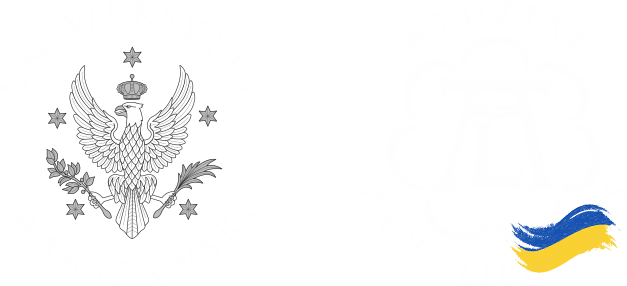
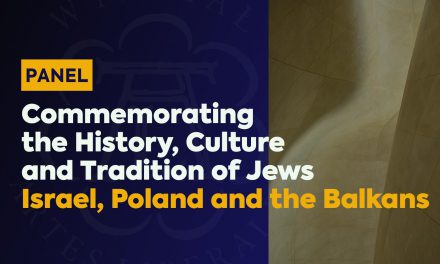
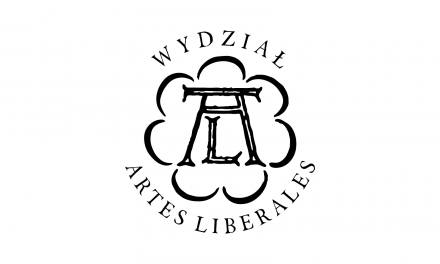
![Prof. Leo Rafolt: „Rituals of the institutionalization” [recording]](https://al.uw.edu.pl/wp-content/uploads/2023/04/FB_IMG_1680638778007-440x264.jpg)

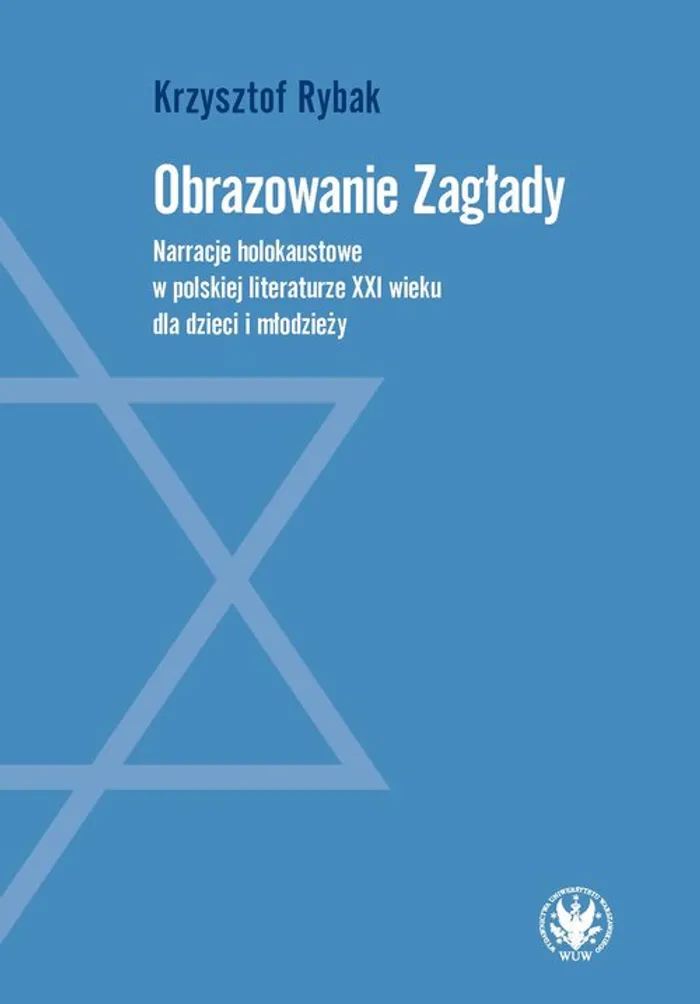
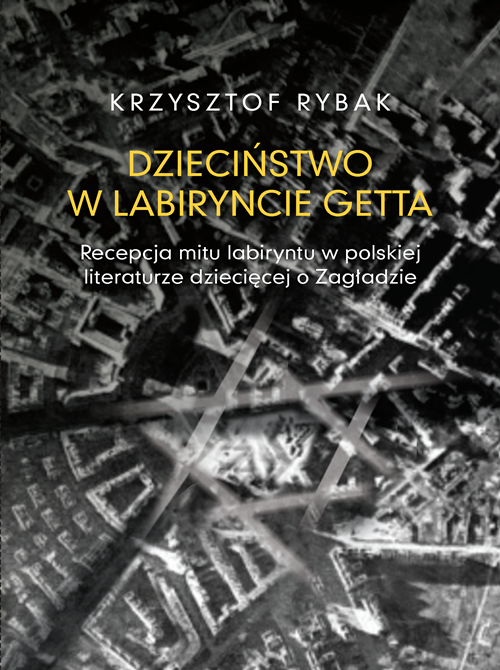


![Prof. Leo Rafolt: „Rituals of the institutionalization” [recording]](https://al.uw.edu.pl/wp-content/uploads/2023/04/FB_IMG_1680638778007-45x45.jpg)




